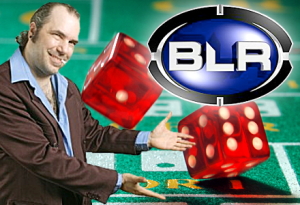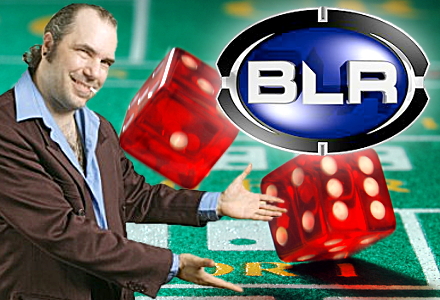 On Friday, the Pittsburgh Tribune-Review published an article identifying online gambling sites using what statisticians claim is rigged casino software. The primarily sportsbetting sites – Legends Sports, World Wide Wagering and 5Dimes – utilized casino software provided by Costa Rica-based BLR Technologies. The controversy came to light in late October after a Las Vegas resident named Norman Clem (‘clempops4’) posted the results of some 3,200 craps bets he’d made on World Wide Wagering between May 14 and Aug. 27.
On Friday, the Pittsburgh Tribune-Review published an article identifying online gambling sites using what statisticians claim is rigged casino software. The primarily sportsbetting sites – Legends Sports, World Wide Wagering and 5Dimes – utilized casino software provided by Costa Rica-based BLR Technologies. The controversy came to light in late October after a Las Vegas resident named Norman Clem (‘clempops4’) posted the results of some 3,200 craps bets he’d made on World Wide Wagering between May 14 and Aug. 27.
The law of averages suggests that Clem’s basic ‘pass line’ bets should have produced a win rate of 49%, or around 1,560 of the 3,200. Instead, Clem won only 27% (856) of these bets. Increasingly suspicious, Clem began compiling all his wagers in a spreadsheet to properly analyze his results. In case anyone still doubted him, Clem also videotaped his wagers and posted them online. (Clem later said he was inspired to do so by the infamous video of Rodney King being beaten by the LA police.)
Intrigued, Michael Shackleford at WizardOfOdds.com performed an experiment. Shackleford made 328 pass line bets at 5Dimes, winning 81 times and losing 247 — a win rate of 24.7%, when 49.29% was the fair probability figure. Dr. Eliot Jacobson of Jacobson Gaming, which performs mathematical analysis of casino games, duplicated Shackleford’s experiment on another BLR-equipped site. When his results matched Shackleford’s, Jacobson engineered a further test to see if he could “force the software to exhibit an extreme bias.”
Exclusively playing the pass line, Jacobson waited until a point was established, after which he bought every number (4,5,6,8,9,10), leaving 7 as the number that would cause him to lose his wager. Over 100 bets, a point was established 74 times. In a truly random system, a 7 would be expected to appear only 12 of those 74 rolls. But a 7 appeared as the first roll on 41 occasions — a result 8.94 standard deviations above expectations.
After both Jacobson and Shackleford posted the results of their experiments, World Wide Wagering refunded the money Clem had lost playing craps on their site. 5Dimes not only refunded Shackledord’s losses, it quit using BLR software altogether. 5Dimes released a statement saying that “BLR was given ample time to address the concerns of forum members as well as our direct questions. No acceptable answers were given, so the casino platform was removed.” Legends GM Rachel Miller told the Tribune-Review that her site continues to use BLR software, but that she could “guarantee that everything is perfect on our end.” Neither BLR nor World Wide Wagering responded to requests for comment.
There’s no way to know if the operators were aware of this situation or whether the software was simply defective (something simple third party testing would have exposed and prevented). While we’re glad to see cheaters exposed and wrongs made right, we disagree with Jacobson’s conclusion that this situation demonstrates the need for increased regulation of the online gambling industry. On the contrary, it suggests that the industry is quite capable of policing itself and exposing underhanded companies for the charlatans that they are. Regulation in and of itself cannot eliminate cheaters, but over-regulation can and does stifle innovation and competition, which ends up cheating the very players it’s intended to benefit. If it ain’t broke, don’t fix it.
